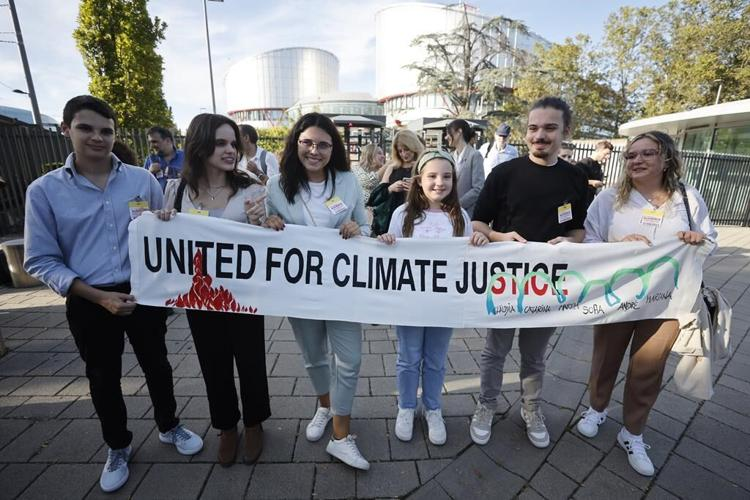
AP Photo/ Jean Francois Badia
Europe's highest human rights court issued a significant ruling on Tuesday, declaring that countries must do more to shield their populations from the effects of climate change. This decision came in response to a case brought forward by a group of elderly Swiss women against their government. Although two other similar cases, involving Portuguese youth and a French mayor, were dismissed on procedural grounds, the Swiss case has established a legal precedent that could influence future climate-related lawsuits throughout the continent.
Corina Heri, an expert in climate change litigation at the University of Zurich, hailed the ruling as a pivotal moment. While activists have achieved success in domestic courts, this marks the first international court decision on climate change and confirms countries' responsibility to safeguard their citizens from its consequences. The ruling sets a precedent for legal challenges in the 46 member states of the Council of Europe, which includes EU nations and others like Britain and Turkey.
Despite the dismissal of other cases, the Swiss ruling was seen as a victory by many. Sofia Oliveira, one of the Portuguese plaintiffs, expressed solidarity with the Swiss women, emphasizing that their win benefits everyone concerned about climate change. The court found Switzerland guilty of failing to fulfill its duties in combatting climate change and meeting emissions targets, thus violating the rights of the women involved. It highlighted the European Convention on Human Rights' provision for state authorities to protect people from the adverse effects of climate change.
The plaintiffs, known as Senior Women for Climate Protection, argued that older women are particularly vulnerable to extreme heat, which is becoming more frequent. Anne Mahrer, a member of the group, welcomed the ruling as a recognition of their right to a healthy climate and urged Switzerland to take ambitious measures to protect citizens' health and future.
Switzerland has indicated that it will study the decision to determine the necessary steps. Alain Chablais, who represented the country during the hearings, emphasized the need to implement the judgment in good faith. However, Judge Siofra O’Leary emphasized that it is ultimately up to governments to decide how to address climate change obligations, underscoring a limitation of the ruling.
Richard Lazarus, a professor at Harvard Law School, noted that while the court stopped short of ordering specific action, it highlighted the importance of democratic decision-making to enact necessary laws. This reflects a growing trend of using legal avenues to compel governments to take more decisive action on climate change.
Greta Thunberg, the prominent climate activist, was present in the courtroom during the announcement of the verdict. She interpreted the rulings as a call to action, emphasizing the importance of holding national governments accountable through legal means. Joie Chowdhury, a senior attorney at the Center for International Environmental Law, characterized the rulings as a confirmation that the climate crisis is fundamentally a human rights issue.
Overall, the ruling by the European Court of Human Rights represents a significant step forward in the global fight against climate change. It underscores the responsibility of governments to protect their citizens from its adverse effects and provides a legal framework for future climate-related litigation across Europe and beyond.















